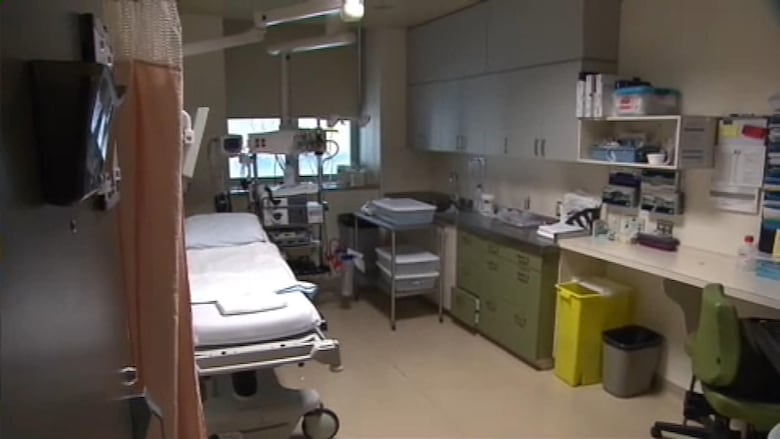New licences for private clinics mean shorter wait times for CT scans, endoscopies: province
The licences come as 'the hospitals are absolutely being crushed right now,' says one doctor

Three private clinics in Windsor-Essex will get provincial money to provide more endoscopies, MRIs and CT scans — a move both politicians and the clinics say will shorten local wait times.
RAAMP Endoscopy, a new clinic owned the chief of staff at Windsor Regional Hospital, is expected to open next year. Rose City Endoscopy will also do more procedures, the province says, as will GMNI MRI/CT in Windsor.
Windsor-Tecumseh PC MPP Andrew Dowie says residents have sounded the alarm about local wait times. Faster answers, he says, means less stress and anxiety.
"In Windsor-Essex, it means far fewer anxious days waiting for appointments," he said at a Friday press conference.
Dowie's announcement is part of a wider expansion that will see the province spend $155 million over two years on 57 new surgical and diagnostic centres.
The local clinics answered the province's call for applications to expand their services. The province will start licensing the services — which means they will be publicly funded and covered by OHIP — next year.
Dr. Wassim Saad owns RAAMP, which stands for Rapid Assessment and Management Program. He says having more licensed centres means less pressure on the hospital system.
"The hospitals are absolutely being crushed right now by things that don't necessarily need to be in a hospital," he said.
"Anything and everything that we can do to offload the hospital saves and protects our hospitals for acute care, which is what they're meant to do."
Dowie says this doesn't mark a move into privatized health care. Privately owned clinics, which have been providing such services for years, are best positioned to do the work.
"When you do one thing well, you have the ability to not have to rotate and revolve a space," he said. "There's just less time spreading the knowledge around. You know what you do, and you do it extremely well.
"These procedures are publicly funded, so it has no resemblance to the American health-care system."
With files from Dalson Chen

